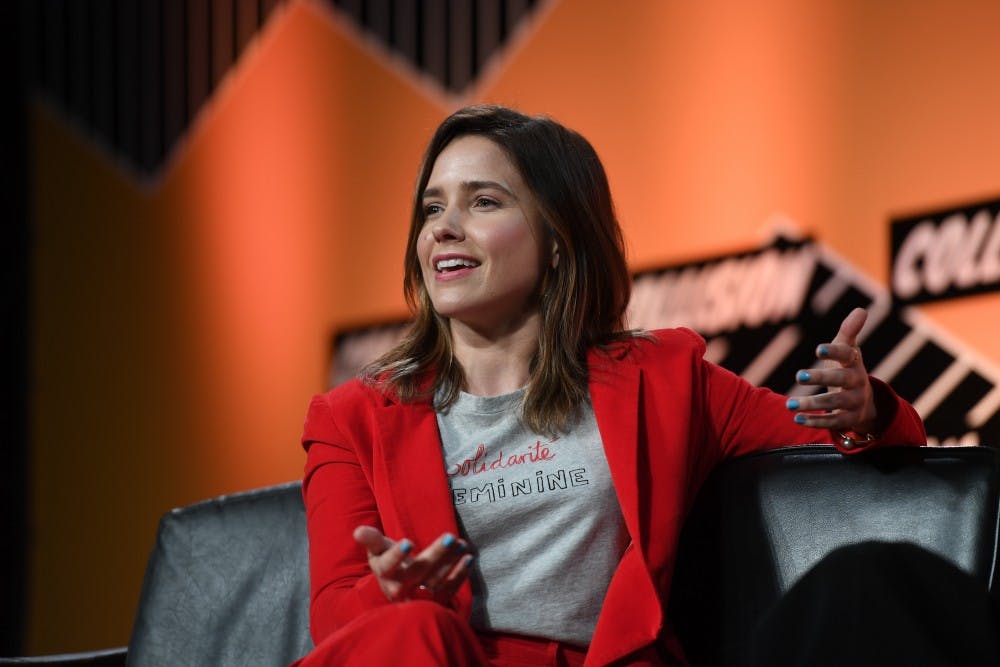Last fall, in the early days of the #MeToo movement, One Tree Hill creator Mark Schwahn was accused of sexual harassment in an open letter signed by 18 women in the cast and crew of the show. Among the accusers were stars Hilarie Burton and Sophia Bush, who played best friends Peyton Sawyer and Brooke Davis, respectively.
In an interview with Variety, Burton detailed years of mistreatment that included repeated unwanted advances, groping and assault. She left the show when her contract was up at the end of season six but lived with “crippling” fear of encountering the same situation somewhere else.
“I never wanted to be the lead female on any show ever, ever, ever again,” she said.
Burton has continued to be supportive of One Tree Hill for fans, though, by attending conventions with other cast members. She and Bush had been scheduled to participate in next week’s annual EyeCon event, which is hosted in Wilmington, N.C., where the show was filmed.
Burton came under fire last month, though, when she tweeted that she would no longer be attending on account of the event’s proposed theme: women’s empowerment (i.e. a discussion of the actors’ experiences with Schwahn).
“I will not be attending any EyeCon events. Ever. I personally feel exploited by their ‘girl power’ angle, which exists at the expense of some of us who went through a difficult time on that show. They’re using our sisterhood as a sales gimmick. No thanks,” Burton wrote.
EyeCon staffer Courtney Collins immediately fired back, claiming Burton was being unfair.
“I’m offended by @HilarieBurton bashing EyeCon like that. I myself have been through plenty of things you will never know about... I’m SO glad we are focusing on women empowerment this upcoming con,” Collins wrote.
EyeCon echoed the sentiment on their official account.
“She doesn’t know us, and she doesn’t know that some of our staff has had experiences too, it is unfair of her to judge our stories as unworthy before we can even tell them,” the organization wrote. “We aren’t taking advantage. We have our own personal reasons for wanting to do this convention. Bringing us all together in one place. We think that’s beautiful.”
Bush quickly came to her co-star’s defense on Twitter and brought a crucial point to light. According to Bush, Eyecon purposefully waited to announce the theme until after actors had signed on to attend.
“They didn’t ask a single one of us if we’d feel okay focusing a convention, which is dedicated to the show on which many of us were harassed or abused behind the scenes, around those very issues and thus offer an expectation to all fans and attendees that we would be discussing these past violations and focusing on issues that none of us want to be forced to relive in meet and greets and photo sessions,” Bush wrote.
Bush also bashed Eyecon’s decision to publicly attack Burton, citing it as her primary reason for joining Burton in backing out of the event.
“You came for my sister. That’s the most anti-women-support-women action I’ve seen. So yeah. This is me officially saying I’m out too,” she wrote.
It was heartening to see Bush stand up for Burton, but it should not have been necessary. It was wrong for Eyecon and Collins to go after Burton in the first place, but they also completely missed her point.
Burton wasn’t “judging [staffers’] stories as unworthy,” she was rightfully judging the organization for assuming she would be willing to share her own story at the convention.
Actors do not owe fans their #MeToo stories. Burton, Bush and Schwahn’s other accusers did bravely share them in the open letter. Burton also shared hers in the interview with Vanity Fair, but that does not mean she is under any obligation to share it again, ever.
It is shameful that EyeCon thought the way to empower women would be to force them to relive some of the darkest moments in their lives, period. It is even more shameful that they wanted to do so for the benefit of fans, who now feel uncomfortable watching the formerly beloved series, as Bush noted on Twitter.
“[EyeCon] made an announcement without thinking of any of the women of One Tree Hill for a second. And now they are defending themselves by saying that Mark took advantage of them too? That he ruined their ability to watch a show which felt like their safe space. Well it HAPPENED to us,” Bush wrote.
Actors are people, just like fans. Their traumas should not be viewed as some kind of inconvenience. It is not their job to make shows like One Tree Hill feel palatable again. It is the job of fans to not be so selfish as to have that expectation.
Catherine Palmer is a senior Writing Seminars major from Norristown, Pa. She is a Managing Editor.





